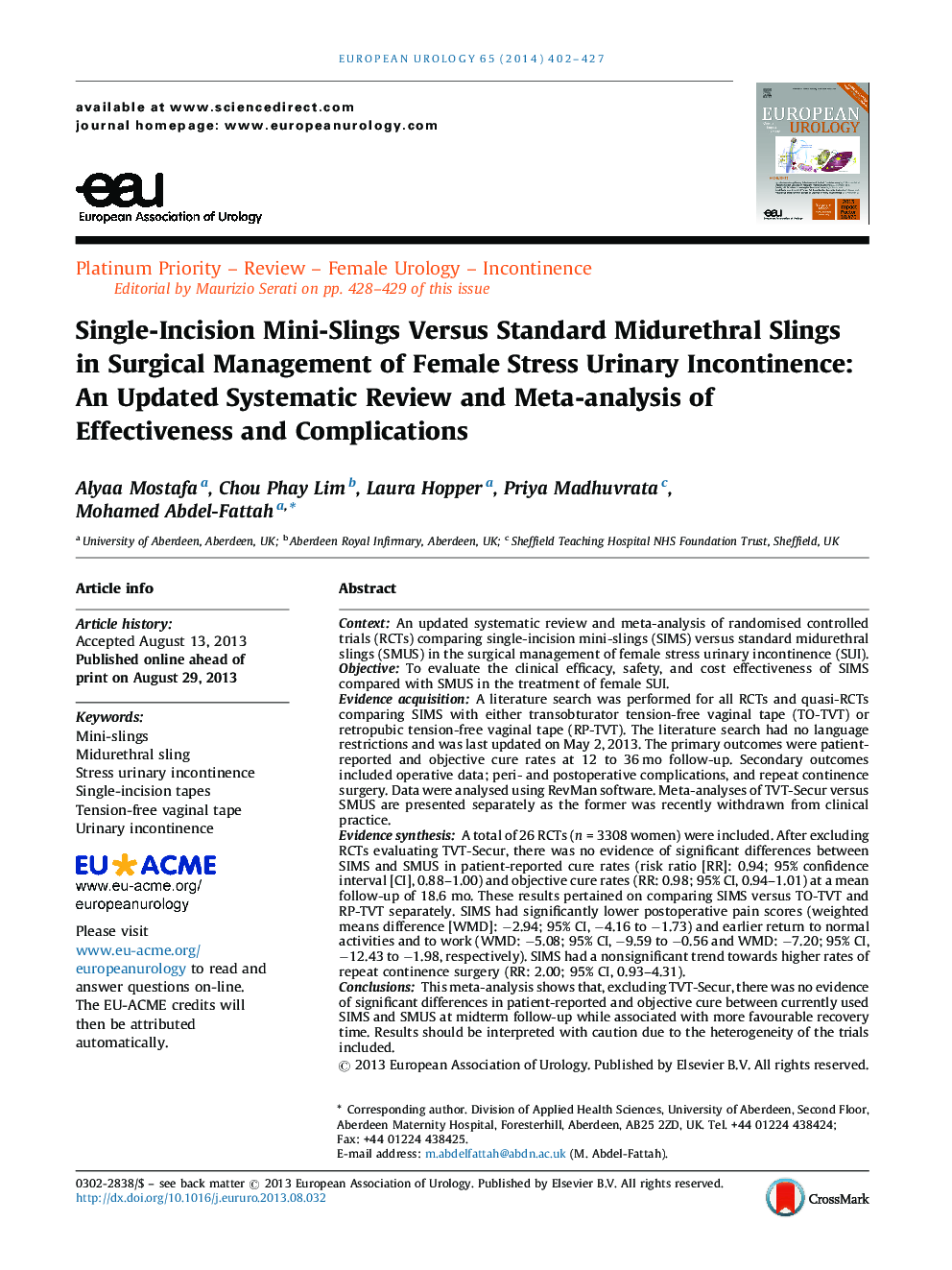| Article ID | Journal | Published Year | Pages | File Type |
|---|---|---|---|---|
| 3924809 | European Urology | 2014 | 26 Pages |
ContextAn updated systematic review and meta-analysis of randomised controlled trials (RCTs) comparing single-incision mini-slings (SIMS) versus standard midurethral slings (SMUS) in the surgical management of female stress urinary incontinence (SUI).ObjectiveTo evaluate the clinical efficacy, safety, and cost effectiveness of SIMS compared with SMUS in the treatment of female SUI.Evidence acquisitionA literature search was performed for all RCTs and quasi-RCTs comparing SIMS with either transobturator tension-free vaginal tape (TO-TVT) or retropubic tension-free vaginal tape (RP-TVT). The literature search had no language restrictions and was last updated on May 2, 2013. The primary outcomes were patient-reported and objective cure rates at 12 to 36 mo follow-up. Secondary outcomes included operative data; peri- and postoperative complications, and repeat continence surgery. Data were analysed using RevMan software. Meta-analyses of TVT-Secur versus SMUS are presented separately as the former was recently withdrawn from clinical practice.Evidence synthesisA total of 26 RCTs (n = 3308 women) were included. After excluding RCTs evaluating TVT-Secur, there was no evidence of significant differences between SIMS and SMUS in patient-reported cure rates (risk ratio [RR]: 0.94; 95% confidence interval [CI], 0.88–1.00) and objective cure rates (RR: 0.98; 95% CI, 0.94–1.01) at a mean follow-up of 18.6 mo. These results pertained on comparing SIMS versus TO-TVT and RP-TVT separately. SIMS had significantly lower postoperative pain scores (weighted means difference [WMD]: −2.94; 95% CI, −4.16 to −1.73) and earlier return to normal activities and to work (WMD: −5.08; 95% CI, −9.59 to −0.56 and WMD: −7.20; 95% CI, −12.43 to −1.98, respectively). SIMS had a nonsignificant trend towards higher rates of repeat continence surgery (RR: 2.00; 95% CI, 0.93–4.31).ConclusionsThis meta-analysis shows that, excluding TVT-Secur, there was no evidence of significant differences in patient-reported and objective cure between currently used SIMS and SMUS at midterm follow-up while associated with more favourable recovery time. Results should be interpreted with caution due to the heterogeneity of the trials included.
